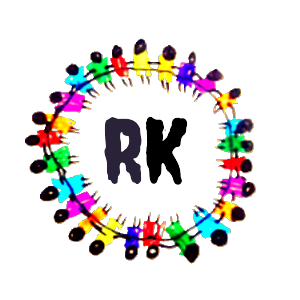Learning PHP effectively involves a structured approach that covers basic to advanced concepts. Here’s a comprehensive outline to guide your learning journey:
1. Introduction to PHP
- Overview of PHP: Learn about PHP’s history, its uses, and why it’s popular for web development.
- Setting Up PHP: Install PHP on your local machine and set up a development environment (XAMPP, WAMP, or MAMP).
2. Basic Syntax and Operations
- Hello, World!: Write your first PHP script.
- Basic Syntax: Understand PHP tags, comments, and basic syntax rules.
- Data Types: Learn about PHP’s data types (integers, floats, strings, booleans, arrays, objects).
- Variables: How to declare and use variables.
- Constants: Defining and using constants.
3. Control Structures
- Conditional Statements: if, else if, else, and switch-case.
- Loops: for, while, do-while, and foreach loops.
- Control Flow Statements: break, continue, and return.
4. Functions
- Defining Functions: Learn to define and call functions, pass arguments, and return values.
- Variable Scope: Understand global and local scope.
- Built-in Functions: Familiarize yourself with common PHP built-in functions.
5. Arrays
- Types of Arrays: Indexed arrays, associative arrays, and multidimensional arrays.
- Array Functions: Explore array functions like array_push, array_pop, array_merge, and array_slice.
6. String Manipulation
- String Operations: Concatenation, length, substrings.
- String Functions: Common string functions like strlen, strpos, substr, str_replace.
- Regular Expressions: Using preg_match, preg_replace, and other regex functions.
7. Working with Forms
- Form Handling: Using GET and POST methods.
- Form Validation: Basic form validation techniques.
- Superglobals: $_GET, $_POST, $_REQUEST, $_SERVER, etc.
8. File Handling
- Reading and Writing Files: fopen, fread, fwrite, fclose, and file_get_contents.
- File Uploads: Handling file uploads and $_FILES superglobal.
- File Functions: Explore file-related functions like file_exists, is_readable, is_writable.
9. Object-Oriented Programming (OOP)
- Classes and Objects: Defining classes, creating objects, and understanding constructors.
- Properties and Methods: Working with class properties and methods.
- Inheritance: Implementing inheritance and understanding the parent and child relationship.
- Encapsulation: Access modifiers (public, private, protected).
- Polymorphism: Method overriding.
- Interfaces and Abstract Classes: Implementing interfaces and abstract classes.
10. Working with Databases
- Connecting to a Database: Using MySQLi and PDO to connect to a MySQL database.
- CRUD Operations: Perform Create, Read, Update, and Delete operations.
- Prepared Statements: Using prepared statements to prevent SQL injection.
11. Error Handling
- Basic Error Handling: Using die(), trigger_error(), and error_reporting().
- Exception Handling: Try, catch, and finally blocks.
- Custom Error Handling: Creating custom error handlers.
12. Sessions and Cookies
- Sessions: Starting a session, setting and retrieving session variables, destroying a session.
- Cookies: Setting and retrieving cookies, cookie expiration.
13. Working with APIs
- RESTful APIs: Consuming RESTful APIs using cURL and file_get_contents.
- JSON Handling: Encoding and decoding JSON data.
14. Security Best Practices
- Input Sanitization: Validating and sanitizing user inputs.
- SQL Injection: Preventing SQL injection.
- Cross-Site Scripting (XSS): Understanding and preventing XSS attacks.
- Cross-Site Request Forgery (CSRF): Understanding and preventing CSRF attacks.
- Password Hashing: Using password_hash() and password_verify() functions.
15. Advanced Topics
- Namespaces: Understanding and using namespaces.
- Composer: Using Composer for dependency management.
- MVC Frameworks: Introduction to PHP frameworks like Laravel, Symfony, and CodeIgniter.
- Advanced OOP Concepts: Traits, magic methods, and reflection.
16. Testing and Debugging
- Debugging Tools: Using tools like Xdebug.
- Unit Testing: Writing unit tests using PHPUnit.
- Error Logging: Configuring and managing error logs.
17. Deployment
- Preparing for Deployment: Best practices for deploying PHP applications.
- Server Configuration: Basics of configuring Apache or Nginx for PHP.
- Version Control: Using Git for version control and GitHub for collaboration.
18. Continuous Learning
- Community Engagement: Join PHP communities on Stack Overflow, Reddit, or Discord.
- Stay Updated: Follow PHP-related blogs, podcasts, and news.
- Advanced Resources: Read advanced books like “PHP Objects, Patterns, and Practice” by M. Zandstra.
By following this outline, you’ll build a solid foundation in PHP and progressively advance your skills through practical application and continuous learning.

Leave a Reply